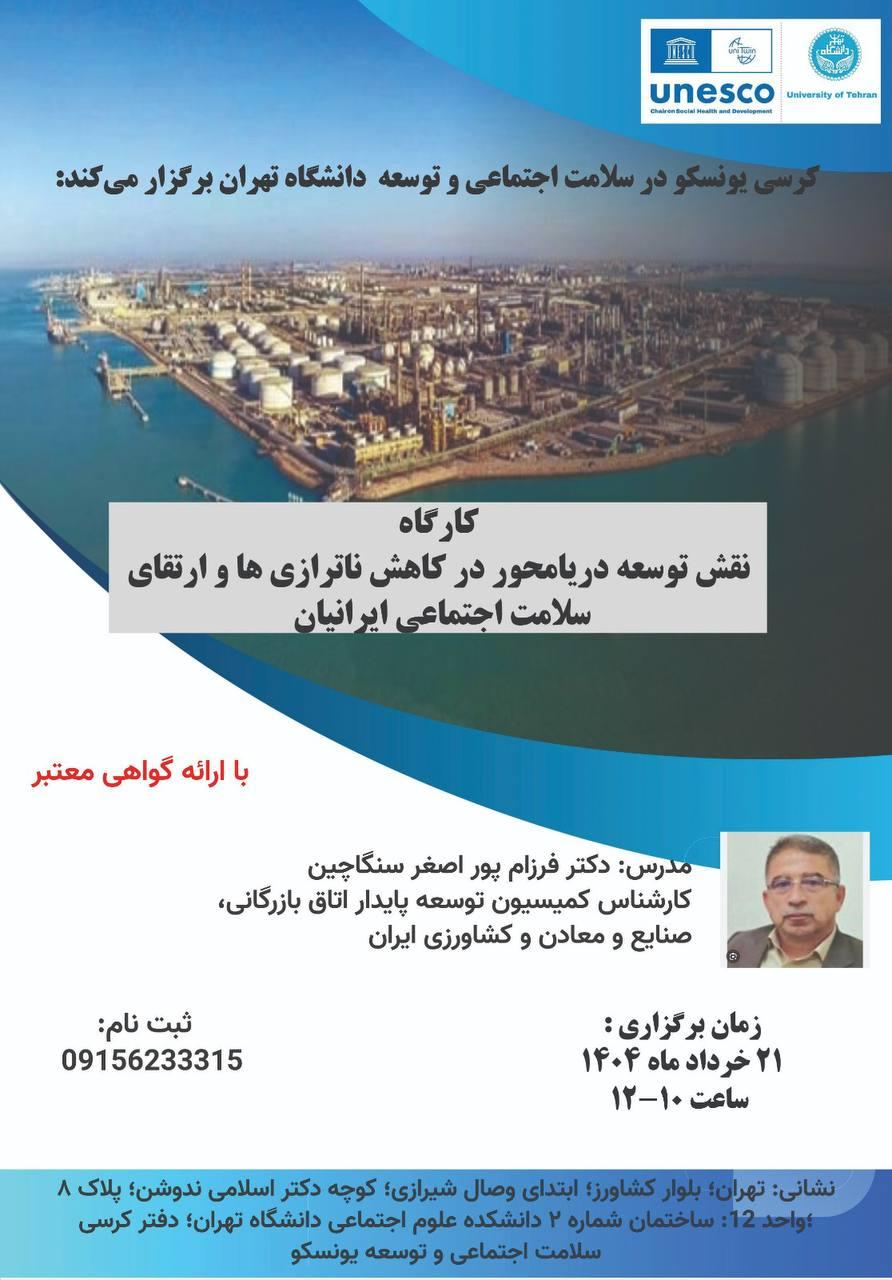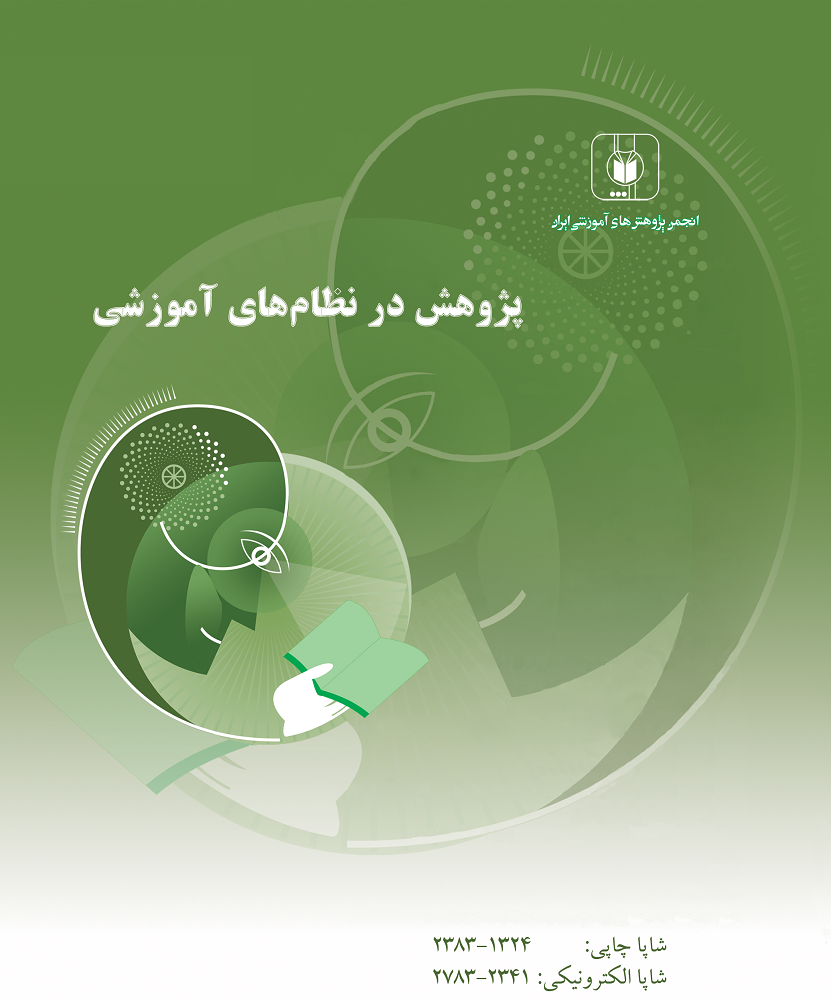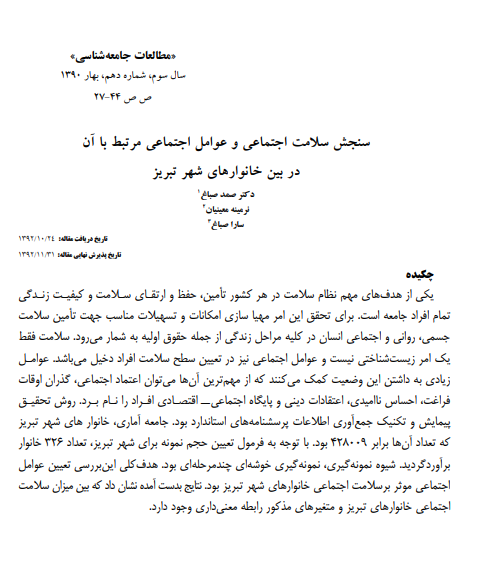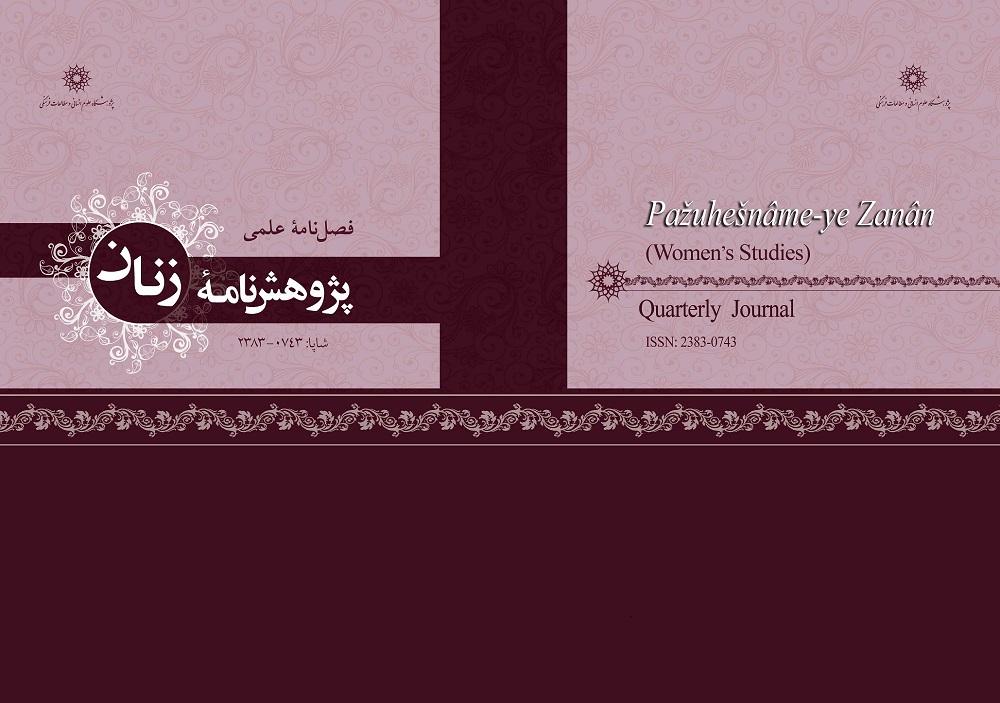Let joy replace inflammation. - کرسی یونسکو در سلامت اجتماعی و توسعه ucshd
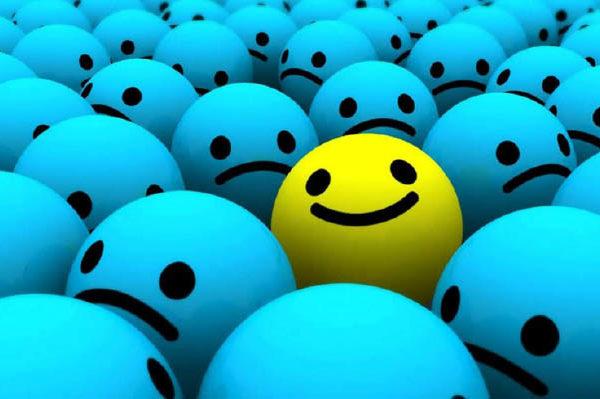
Let joy replace inflammation.
Let joy replace inflammation.
01 01 2024 10:33
News Code : 4193703
View Count : 814
Experts discuss measures that should be taken to increase mental balance, hope, and social peace
Joy should replace anger
Experts discuss measures that should be taken to increase mental balance, hope, and social peace
Report by Tameh Mahdavi - Hamshahri reporter January 19, 2019
Iranian society has experienced days of intense anger in the past 2 months, from the increase in gasoline prices to the announcement of the plane crash, and these tensions have had a negative impact on the morale of some people. Hopelessness, despair, fatigue from the situation, increased interest in emigration, distrust, feelings of depression, and sadness are just some of the undesirable conditions that a part of Iranian society has suffered from due to political, economic, and social tensions, and we constantly see them being discussed in various circles; conditions that sociologists, social workers, and especially psychologists believe that their continuation could lead to severe mental and social crises and face society with collapse and disintegration. In the meantime, the main solution to overcome these conditions, according to experts, is to restore mental balance to society and listen to the voices of the protesters. This can restore hope and trust to the affected and protesting sections of society and lead the mental conditions towards peace.
Experts believe that the authorities should move the country towards social joy and happiness by providing the necessary conditions and using cultural and ethnic diversity and emphasizing national identity after peace returns.
The head of the Iranian Social Workers Association, stating that the delay in informing the society about the cause of the Ukrainian plane crash had many consequences, said: This delay in informing the public and some incorrect information that was given to the people by some officials in the first days of the incident, caused people's hope in the authorities to decrease and we are witnessing the emergence of sadness and grief in the country and a feeling of being unfaithful among citizens.
Seyyed Hassan Mousavi Chelak said in an interview with Hamshahri: "In recent weeks, we have witnessed many events, some of which, such as the assassination of General Soleimani and the downing of a Ukrainian plane, were upsetting and the IRGC's missile attack on the US Ain al-Assad base in Iraq, were happy for the people. Despite this, the volume of events that caused sadness and grief in society was very large, causing the joy of the attack on the US base in Iraq to be overshadowed.
He pointed out that the issue of trust in society is one of the important issues that the government must value, and continued: "Trust is one of the indicators of social capital that arises with people's trust in agents and the government, but in the recent incident, we have witnessed that people's trust has decreased and the main reason for this is the lack of a media policy in times of crisis."
Mousavi Chelak continued: "When we witness a lack of media policy in a society, the way news and events related to an event are reflected changes a lot because they are not defined in advance, causing dissatisfaction and protests among the people. People believe that if they had been informed on the very first day of the plane crash and had not witnessed contradictory news about it, these uncertainties and angers would not have formed in society. This lack of timely information by some officials about this incident has caused people to generalize this issue to other issues in society, such as the issue of currency and gasoline, etc., and to imagine that they have not been told the truth in these cases as well." He continued: "The management's weakness in informing and providing incorrect information about this issue and the gasoline issue in recent months has caused people to become upset and a kind of uncertainty about the decision-making of managers has spread among them."The head of the Iranian Social Workers Association, stating that cyberspace caused negative news to spread among the people sooner than managers could inform them, said: Our country does not have a proper indicator of vitality and cheerfulness, and according to statistics from the Ministry of Health, 23% of our country's people suffer from some type of mental illness. Despite this, the re-publication of negative news on social networks - without paying attention to its negative effects - has a negative impact on the morale of the people, people who have experienced various crises in less than 2 months and have not learned how to be resilient in the face of crises. This is why we are witnessing a huge sadness in society. Mousavi Chelak said: Our people have not yet received a response from the authorities regarding the November protests and are under psychological pressure. In addition, the issue of the downing of the Ukrainian plane and the lack of accurate information occurred, which caused the latent dissatisfaction among the masses to surface and lead to protests; Because people think that these street protests are the only way they can make their voices heard by the authorities. This shows that the gap between a part of society and the government is increasing.
He continued: The result of the atmosphere we have witnessed in recent months is the existence of dissatisfaction and fear in society. Citizens who are afraid and fearful in their lives do not enjoy their lives and become more withdrawn and feel more lonely in society; under these conditions, we cannot expect to have a happy and cheerful society because they do not have a clear vision ahead of them.
According to Mousavi Chelak, the capacities of people are different from each other, some react in the form of protests and others choose seclusion and isolation. In these conditions, the government loses two important sources of healthy, effective and efficient human capital and social capital; it is natural that no government can properly perform its duties without the trust of its citizens.
He expressed regret that social capital, trust, and participation in our country are declining, and said: "In the field of macro-policymaking, we need to review and redefine it to strengthen social capital, so that transparency, accountability, and honesty must exist among officials, and meritocracy replaces good genes, nepotism, and factionalism, and conditions are created where the voices of protesters are heard. These issues will reduce the distance between the people and the government and create a peaceful social atmosphere. In addition, measures must be taken to promote community vitality, happiness, and the expression of common feelings and national and public celebrations." Mousavi Chelak said: "In a society that is supposed to be dynamic and vibrant, a platform for equal access to opportunities must be created, people must be able to demand their rights and see that their voices are heard. If this space is created at the macro-level of society and opposing views are also allowed to be expressed, people will feel that the government cares about them and is not an outsider in decision-making." He continued: "The authorities must accurately identify and prioritize the problems of the people. Red lines must be reduced and capable and elite people from all political orientations must be allowed to be present in the government and help the government and society emerge from the crisis by playing their social role. To get out of this situation, we need elites who can untie the knots of society by being present in the government and society." The head of the Iranian Social Workers Association, stating that the space is not suitable for elites to work now, continued: "Unfortunately, in the current situation, yellow and negative news and media have a greater impact among the people. One of the components for increasing social cohesion is to use cultural, ethnic, national and religious capacities to emerge from the crisis. To achieve this goal, we must eliminate many audits, and we must take citizenship rights, access to equal opportunities, and respect for people seriously." We need great people who can give positive energy to society and inject positive energy into society due to their capabilities or honesty, health, transparency and accountability.
Mousavi Chelak said: "We need people like Martyr Sardar Soleimani in society who give positive energy to society even with their martyrdom and are capable people who give credibility to society and this credibility leads to strengthening the citizens of society. The capacity of all people in the country must be used, and now we are in a situation where if we do not manage this area, our problems will increase day by day. This is why different tastes and tendencies must be able to operate in the country within the framework of the constitution; because Iran is for all Iranians and neglecting this participation will reduce or destroy social capital.
He continued: "In the meantime, of course, people must also increase social skills in themselves and their families and take care of themselves, and officials must also calm the situation and reduce inflammation by changing the public atmosphere." Why are the voices of the protesters not taken seriously or even heard? With these conditions, not only will the situation not improve, but we will also witness increasing social gaps, despair, and distrust day by day.
Hassan Mousavi Chelak: In the field of macro-policymaking, we need to review and redefine it to strengthen social capital, so that transparency, accountability, and honesty must exist among officials, and meritocracy replaces good genes, nepotism, and factionalism, and conditions are created where the voices of the protesters are heard. These issues will reduce the distance between the people and the government and create a peaceful social atmosphere. Source: Hamshahri Newspaper. 11 January 2019



